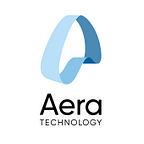Digital Transformation Facilitates On-Time Delivery
by Stephanie Glass, Head of Product Marketing for Cognitive Skills at Aera Technology
Digital transformation has become a critical imperative to address the weak link of ATP/CTP in the pharma supply chain
Promise dates for delivery of drugs to pharmacies and healthcare providers have traditionally been little more than guesswork. The problem is only worsening as pharmaceutical manufacturers struggle with growing complexity across a highly volatile global supply chain.
The stakes are high. Pharmaceutical companies suffer lost revenue and dissatisfaction among healthcare provider customers when drugs aren’t delivered on time and in full. Revenue drops if a healthcare provider turns instead to a competitor or generic drugs.
More importantly, patient health can be jeopardized if promise dates aren’t met, leaving a hospital or an entire region without needed medication.
Pharmaceutical companies are acutely aware of the limitations of available to promise and capable to promise (ATP/CTP) functionality in traditional supply chain management software. Legacy applications use static, rule-based calculations to determine a reasonable promise date for a particular drug or customer.
Too often, those promise dates are wrong because outdated SCM software can’t account for real-time dynamics that cascade throughout the supply chain, from raw materials sourcing to production and distribution. Even in the hands of the most skilled demand planners, traditional ATP/CTP software is no match for enormous quantities of ever-fluctuating data.
New Possibilities with Digital Innovation
Digital transformation has become a critical imperative to address the weak link of ATP/CTP in the pharma supply chain and optimize end-to-end processes. Now, digital innovations including cloud computing, the Internet of Things (IoT), big data, artificial intelligence and machine learning are opening exciting new possibilities for drug makers to optimize the supply chain and set promise dates far more precisely than is possible with traditional means.
For example, Aera Technology equips many of the world’s leading pharmaceutical companies with cloud-based AI and machine learning that helps them zero in on key needs of greater collaboration, flexibility and reduced cost. Those elements are essential for drug makers to improve precision of promise dates and digitally transform the supply chain for greater efficiency.
Multi-party collaboration. Healthcare as a whole is becoming more collaborative as care providers, drug makers, insurers and other stakeholders align around goals of patient-centric personalized medicine and value-based care. Pharmaceutical companies play a central role in emerging collaborative models.
Pharma companies benefit by working more closely with healthcare providers, third-party epidemiological researchers, raw materials suppliers and others. The cloud enables data exchange across stakeholders, so that information can be securely shared and made available for analysis.
That’s where AI and machine learning comes in. Pharma companies can use AI to analyze large sets of disparate internal and third-party data to better assess need, spot weaknesses and accelerate the drug lifecycle, from initial R&D to ATP and fulfillment that’s much more accurate and cost-efficient than the status quo.
Real-time visibility enables agility. Flexibility to adapt in real time to volatility has long been the ideal in the pharma supply chain, yet it’s been an elusive target. Data scattered across siloed ERP, SCM, MES and other applications makes it virtually impossible to achieve visibility across sourcing, production and distribution.
AI changes the equation. Today’s best AI platforms can crawl data across systems thousands of times a day, normalize that information into a single cloud dataset, and enrich it with domain knowledge. Based on both historical and real-time data, AI can then analyze and act to offer recommendations, make predictions and even take autonomous actions.
AI’s depth of analytics and prowess at linking cause and effect is exactly what the doctor ordered to optimize the pharmaceutical supply chain. The technology can spot surplus raw materials beyond capacity in Brazil and an expected shortfall in Mexico, and recommend adjustments to keep production and ATP/CTP dates on track.
That’s just one simple example. Algorithmic models can apply across all supply chain stages, from raw materials pricing and availability to speed of third-party fulfillment to an end-customer. AI is uniquely able to detect anomalies, assess trends, deliver what-if analyses, take corrective action and bring breakthrough precision to promise dates.
Reduced costs. The pharmaceutical industry bears high costs across the supply chain from R&D and beyond. Development and go-to-market for niche drugs that might target a rare condition is especially inhibited by high costs. But given the enormous scale of the pharma supply chain, even reducing costs by 1 or 2 percent translates into millions of dollars in savings.
That long-held goal becomes possible when AI is applied to unearth insights that defy traditional efforts. In one example, planners have limited visibility into available stock across multiple locations. Piecing that information together requires manually consolidating information from standalone systems and matching it to forecasts; by the time that is done, the information is outdated.
AI, on the other hand, delivers nearly instantaneous analysis that enables drug makers to dramatically reduce inventory costs and improve production cost-efficiency. It can streamline ATP/CTP by accounting for allocated quantities, order quantities and real-time changes to address costly glitches and improve promise date accuracy.
ATP/CTP doesn’t need to remain a weak link in the pharma supply chain. By embracing advanced digital technologies such as AI and machine learning, drug makers are today able to introduce new transparency and efficiencies across the supply chain. That’s vital for developing and delivering pharmaceuticals at greater speed and less cost.
This article originally posted in Pharmaceutical Manufacturing.
—
Stephanie Glass is the Head of Product Marketing for Cognitive Skills at Aera Technology. She is responsible for product strategy and product marketing for Cognitive Skills, a critical component of Aera’s AI solutions. She brings to Aera extensive experience in AI, machine learning, planning and analytics, with past roles at Anaplan, GoodData and Jive Software.
